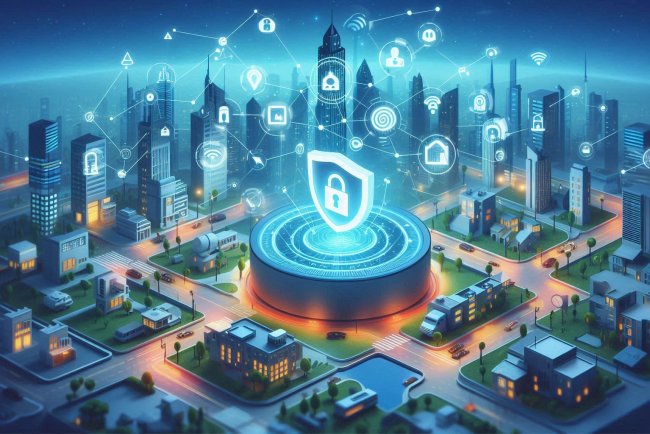Software as a Service (SaaS)
Discover the benefits of Software as a Service (SaaS) with scalable, cloud-based solutions. Streamline processes and enhance productivity with SaaS.

Software as a Service (SaaS)
Software as a Service (SaaS) is a software delivery model where software is hosted on a cloud infrastructure and made available to customers over the internet. In this model, users can access the software on a subscription basis, rather than purchasing and installing it on their own devices.
Key Characteristics of SaaS:
- Cloud-based: SaaS applications are hosted in the cloud and accessed through a web browser, eliminating the need for users to download and install software on their devices.
- Subscription-based pricing: SaaS is typically offered on a subscription basis, where customers pay a recurring fee to access the software. This model often includes updates, maintenance, and support as part of the subscription.
- Multi-tenancy: SaaS applications are designed to serve multiple customers (or tenants) from a single shared instance of the software. This allows for efficient resource utilization and scalability.
- Automatic updates: SaaS providers handle updates and maintenance of the software, ensuring that customers always have access to the latest features and security enhancements.
- Scalability: SaaS applications can easily scale to accommodate growing or fluctuating user demands, as the underlying infrastructure is managed by the provider.
- Accessibility: SaaS applications can be accessed from any device with an internet connection, making it convenient for users to work from anywhere.
Benefits of SaaS:
There are several benefits to using SaaS for both businesses and individual users:
- Cost-effective: SaaS eliminates the need for upfront hardware and software investments, as well as ongoing maintenance costs. Customers pay only for what they use on a subscription basis.
- Easy deployment: SaaS applications can be quickly deployed and accessed through a web browser, without the need for complex installation processes.
- Automatic updates: SaaS providers handle software updates and maintenance, ensuring that customers always have access to the latest features and security patches.
- Scalability: SaaS applications can easily scale to accommodate growing business needs, without requiring additional infrastructure investments.
- Accessibility: SaaS applications can be accessed from anywhere with an internet connection, enabling remote work and collaboration.
Examples of SaaS Applications:
There are many types of SaaS applications available across various industries. Some common examples include:
- Customer Relationship Management (CRM) software: CRM tools like Salesforce, HubSpot, and Zoho CRM help businesses manage customer relationships, sales pipelines, and marketing campaigns.
- Enterprise Resource Planning (ERP) software: ERP systems like SAP S/4HANA, Oracle NetSuite, and Microsoft Dynamics 365 enable businesses to integrate and manage core business processes such as finance, HR, and supply chain.
- Collaboration and Communication tools: Tools like Microsoft Teams, Slack, and Google Workspace facilitate communication and collaboration among team members, regardless of their physical location.
- Project Management software: Project management tools like Asana, Trello, and Monday.com help teams plan, track, and collaborate on projects effectively.
- Human Resources (HR) software: HR platforms like BambooHR, Workday, and ADP provide solutions for managing employee data, payroll, benefits, and performance reviews.
Considerations for Choosing SaaS:
When evaluating SaaS solutions for your business or personal use, consider the following factors:
- Feature set: Ensure that the SaaS application offers the features and functionality you need to meet your requirements.
- Integration capabilities: Check if the SaaS application integrates with other tools and systems you currently use to ensure seamless workflows.
- Security and compliance: Verify that the SaaS provider follows industry best practices for security and compliance to protect your data.
What's Your Reaction?

















